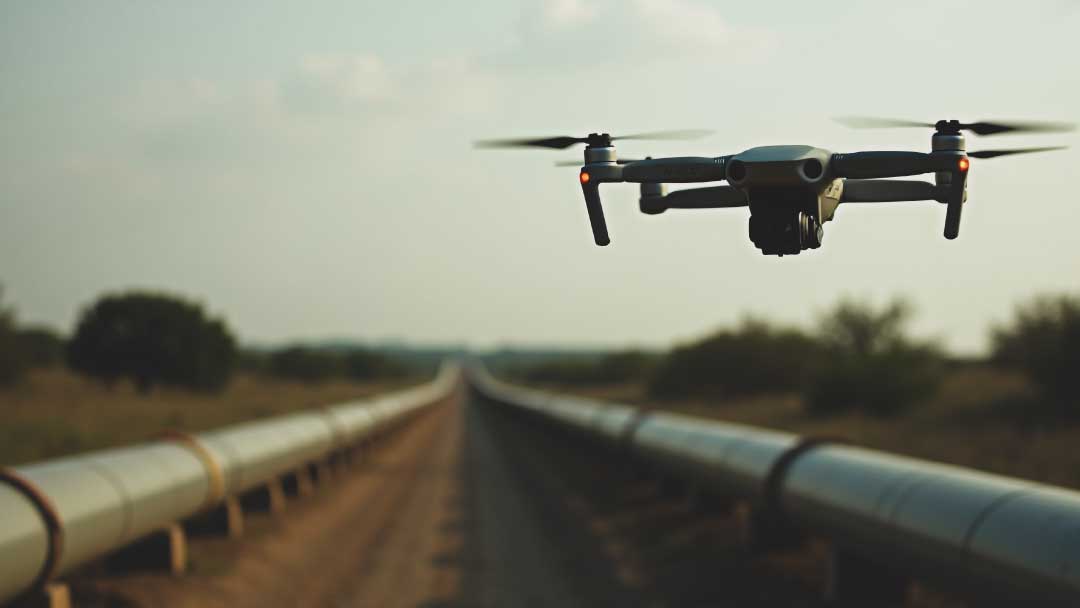Oilfield Security Guards: Your Defense Against Theft & Loss
Oilfield Security Guards: Your Defense Against Theft and Loss
The oil and gas industry is the backbone of modern energy infrastructure, driving economies and fueling progress worldwide.
However, it also faces significant challenges, including theft, vandalism, and operational disruptions. These threats are particularly pronounced at remote oilfield sites, where high-value equipment, critical infrastructure, and limited personnel create an attractive target for criminals.
The cost of theft or vandalism in the oil and gas sector extends far beyond replacing stolen assets.
These incidents can lead to operational delays, environmental damage, and even regulatory penalties. For decision-makers in this industry, protecting their sites is not just about safeguarding assets… it’s about ensuring business continuity, meeting compliance standards, and maintaining their reputation.
At GPI Defense, we’ve seen firsthand how proactive security measures, including the deployment of trained security guards, can deter theft, mitigate risks, and provide peace of mind.
This article explores the unique security challenges oilfield sites face and how security guards play a pivotal role in protecting valuable assets and ensuring smooth operations.

Understanding the Unique Risks Faced by Oilfield Sites
Oilfield sites are a magnet for theft and vandalism due to their remote locations and valuable resources. Understanding these risks is the first step toward implementing effective security measures.
- High-Value Equipment
Expensive machinery, tools, and materials are primary targets for thieves. Even minor thefts of tools or spare parts can disrupt operations and lead to costly delays. - Copper and Metal Theft
Copper wiring, pipes, and other metals are often stolen for resale, causing significant financial loss and operational downtime for repairs. - Pipeline Vandalism and Protests
Environmental activism has brought an increase in pipeline protests, with some leading to vandalism or damage to infrastructure. These incidents can halt operations and cause costly delays. - Remote Locations and Accessibility Challenges
Isolated oilfield sites are harder to monitor and often lack nearby law enforcement resources, making them more vulnerable to criminal activity.
How Security Guards Deter Theft and Vandalism
Security guards are a proactive and effective solution to deterring theft and vandalism at oilfield sites. Their expertise, visibility, and ability to respond in real time make them an indispensable part of any oil and gas security strategy.
- Visible Deterrence
The presence of uniformed security guards sends a clear message: this site is protected. Thieves are far less likely to target a site with active security personnel patrolling. - Proactive Patrolling and Monitoring
Security guards actively patrol sites to identify and address risks before they escalate, covering vulnerable areas such as equipment storage zones and pipeline perimeters. - Building Relationships with Local Communities
Guards stationed at oilfield sites often engage with the surrounding community, fostering goodwill and gaining valuable insights into potential threats.
Enhancing Security with Advanced Technology
Integrating advanced technology with human expertise creates a more comprehensive security strategy.
- Drone Surveillance
Drones provide a bird’s-eye view of large areas, allowing guards to monitor remote or hard-to-access locations effectively. - Access Control Systems
Security guards manage entry points with tools like biometric scanners and keycard systems to ensure only authorized personnel can access restricted areas. - Real-Time Reporting Tools
Mobile apps allow guards to document incidents and communicate updates instantly, enabling quick responses and thorough record-keeping.
Addressing Regulatory Requirements
Security measures must align with industry standards and regulations to ensure compliance and avoid penalties.
- Compliance with Safety Standards
Guards trained in hazardous material handling and emergency response contribute to a safer, compliant work environment. - Environmental Protections
Preventing unauthorized access reduces the risk of environmental damage, such as spills or contamination. - Government Oversight
Guards assist with inspections and maintain detailed incident records to demonstrate compliance with regulatory standards.
Building a Proactive Security Strategy
A proactive security strategy is essential to safeguarding oilfield operations.
- Risk Assessments
Security providers conduct site evaluations to identify vulnerabilities and prioritize high-risk areas. - Customized Guard Deployment
Tailored security plans ensure guards are positioned strategically to protect critical infrastructure and high-value equipment. - Collaboration with Site Management
Security guards work closely with management to adapt strategies and address evolving risks.
Protect Your Oilfield Operations Today
Securing oilfield sites is about more than protecting assets – it’s about ensuring business continuity, maintaining compliance, and safeguarding your reputation.
With experienced security guards and tailored solutions, GPI Defense helps oil and gas companies mitigate risks and operate with confidence.
If you’re ready to enhance your oilfield security, contact GPI Defense today for a customized solution designed to meet your unique needs.
“At GPI Defense, we protect more than just property… we actually safeguard your business from financial risks, theft, and legal liabilities.”